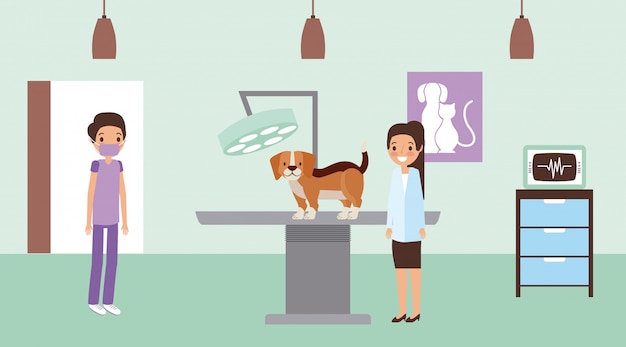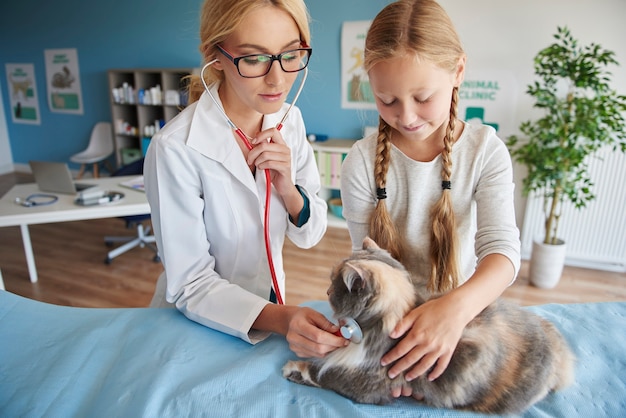Back-to-School Pet Safety Tips for Camarillo Families

Back-to-School Pet Safety Tips for Camarillo Families
As summer winds down and families across Camarillo gear up for a new school year, the excitement of a fresh routine can bring unexpected changes for your pets. The shift from long, leisurely days with the family to quieter hours at home may prompt questions about your pet’s wellbeing: Will my dog get lonely while the kids are at school? Could my cat become anxious with a sudden change in household activity? At Central Animal Clinic, located at 167 N Aviador Street Suite A, Camarillo, CA 93010, we understand the unique challenges that come with the back-to-school transition. Our veterinary professionals are here to help you keep your pets safe, healthy, and happy—no matter what the school calendar brings.
This guide is designed to deliver practical back to school pet safety advice tailored to families in Camarillo and surrounding communities. We’ll cover how to recognize signs of stress in pets, common causes of anxiety and behavioral changes, strategies to prevent accidents, and when to reach out to our veterinary team for support. From updating microchips to establishing safe routines, these Camarillo pet safety tips will help ensure your pet is well cared for during every season of change. If you’re seeking a compassionate vet near me for ongoing guidance or want to schedule a wellness examination as life gets busier, our team at Central Animal Clinic is here for you.
Recognizing the Signs: How Back-to-School Changes Affect Pets
The start of a new school year often brings a flurry of activity, followed by long stretches where pets may find themselves alone or adjusting to a quieter household. It’s important for pet owners to recognize when their furry family members are struggling with these changes. Signs that your pet may be experiencing stress during the back-to-school transition include increased destructive behavior, more frequent vocalizations such as barking or meowing, changes in appetite, and withdrawal from social interaction. Dogs might start chewing on furniture or shoes, while cats could become more vocal or hide for extended periods. Other symptoms to watch for are house soiling in pets that were previously well trained, excessive grooming or licking, and uncharacteristic clinginess when family members return home.
In addition to behavioral signs, some pets exhibit physical symptoms like vomiting or diarrhea when they are anxious. These clues can be subtle at first, so it’s important to monitor your pet closely as routines shift. If you notice any of these changes, remember that your pet is not misbehaving on purpose; they are likely feeling unsettled by the new schedule.
Why Do Pets Struggle with Schedule Changes? Understanding the Causes
Pets are creatures of habit, and sudden changes can disrupt their sense of security. In Camarillo homes, the back-to-school season often means less daytime company, unpredictable feeding or play times, and different energy levels in the home. Dogs and cats form strong bonds with their families and thrive on consistency. When children leave for school after a summer of companionship, pets may feel left out or confused by the sudden absence. For some, separation anxiety emerges—this is especially true for pets adopted during the summer months who are used to constant attention.
Environmental factors also play a role. Camarillo’s mild weather means pets are often accustomed to spending time outdoors with their families; a sudden reduction in outdoor activity can add to feelings of boredom and restlessness. The presence of new school supplies, backpacks, and lunchboxes can introduce tempting hazards for curious pets, increasing the risk of accidental ingestion or injury. Understanding these underlying causes will help you anticipate your pet’s needs and create a smoother transition.
Supporting Your Pet: Professional Care and Home Strategies
Central Animal Clinic recommends a proactive approach to back to school pet safety, combining regular veterinary care with thoughtful home management. Annual wellness examinations offer an ideal opportunity to discuss behavioral changes, address health concerns, and establish preventive care tailored to your pet’s age and lifestyle. Our veterinarians can help identify early signs of stress or illness and recommend solutions such as behavior modification techniques, nutrition adjustments, or pheromone therapy to ease anxiety.
If your pet has not yet been microchipped, or if you need to update your contact information, this is an excellent time to consider our microchipping services in Camarillo. Microchipping provides peace of mind should your pet slip out an open door during hectic mornings or become lost, as it significantly increases the chances of a safe reunion.
Additionally, for families concerned about seasonal allergies or sudden changes in their pet’s health, our allergy testing services for pets can help pinpoint triggers and guide effective management. These professional services, combined with routine vaccinations and parasite prevention, form the foundation of comprehensive pet safety in Camarillo.
Creating a Safe and Predictable Home Environment
At home, you can take steps to reduce stress and minimize risks. Setting consistent feeding, walking, and play times helps pets anticipate daily events and feel secure. Consider leaving out interactive toys or puzzle feeders during the day to keep your pet mentally engaged. For pets prone to separation anxiety, gradual desensitization to departures and arrivals—such as practicing brief absences before school starts—can make transitions easier.
Safety-proofing your home is especially important during the back-to-school season. Ensure backpacks and lunchboxes are stored out of reach, as they may contain foods toxic to pets like grapes or chocolate. Keep new school supplies such as glue sticks, markers, and rubber bands off the floor, since ingestion of these items can lead to digestive upset or obstruction. If your pet has access to outdoor spaces, inspect fences and gates for vulnerabilities, as anxious pets may attempt to escape in search of their family.
Preventing Accidents and Unwanted Behaviors During Back-to-School
The sudden bustle of busy mornings can increase the risk of accidents for pets. In the rush to get out the door, doors and gates may be left ajar, offering pets an unintentional escape route. To prevent these mishaps, assign a family member to check that your pet is safely secured before everyone leaves for the day. For dogs, a morning walk before school can help burn off energy and reduce restlessness. For cats, a short play session with a favorite toy can provide stimulation and comfort.
Addressing unwanted behaviors promptly is key to maintaining a harmonious home. For example, if your dog begins chewing on shoes or furniture, redirect their attention with chew toys or safe treats. If your cat starts scratching furniture or vocalizing more than usual, provide scratching posts and interactive play to satisfy their natural instincts. Remember that punishment is rarely effective and can increase anxiety; instead, focus on positive reinforcement and patience as your pet adapts to the new routine.
If you suspect your pet’s behavior may be linked to an underlying health issue, don’t hesitate to schedule a wellness examination with our veterinary team. Sometimes, what appears to be a behavioral problem is actually a sign of pain, illness, or discomfort that requires professional attention.
When to Seek Veterinary Care: Knowing the Right Time to Call
While many pets adjust to the back-to-school transition with time and support, certain signs signal that your pet may require veterinary care. If your pet stops eating or drinking, shows persistent vomiting or diarrhea, develops sudden aggression, or exhibits symptoms such as excessive lethargy or labored breathing, contact Central Animal Clinic promptly. These signs can indicate underlying medical conditions that need professional evaluation.
Additionally, if your pet’s anxiety or destructive behaviors do not improve with home strategies, or if they are causing harm to themselves or others, our veterinary professionals can help develop a targeted treatment plan. Early intervention is important for both your pet’s wellbeing and your family’s peace of mind. We encourage you to reach out if you have any questions or concerns about back to school pet safety, as every pet’s needs are unique.
Back-to-School Safety: A Team Effort for Camarillo Pet Owners
The back-to-school season is a time of excitement and new beginnings for families in Camarillo and surrounding communities. With a few proactive steps, you can help ensure that your pet remains happy, healthy, and safe as routines shift. Central Animal Clinic is committed to supporting you with expert guidance, preventive care, and compassionate service throughout the year.
If you’re looking for the best veterinarian near me for back to school pet safety, our team is here to help. Schedule an appointment for a wellness examination or discuss your concerns with one of our knowledgeable veterinarians. We also offer microchipping services in Camarillo to help protect your pet if they wander during the hustle and bustle of the school year.
Your pet’s wellbeing is our top priority. Call us at (281) 816-4588 or visit us at 167 N Aviador Street Suite A, Camarillo, CA 93010 to schedule your visit. Let our dedicated veterinary team help you navigate every season with confidence and care. For more information about back to school pet safety or to find the right vet near me, we invite you to connect with Central Animal Clinic—your trusted partner in Camarillo pet safety tips and lifelong pet health.
This blog is for informational purposes only and does not replace professional veterinary advice. Always consult your veterinarian for specific questions about your pet’s health or behavior. For urgent concerns, please contact our clinic directly.
























